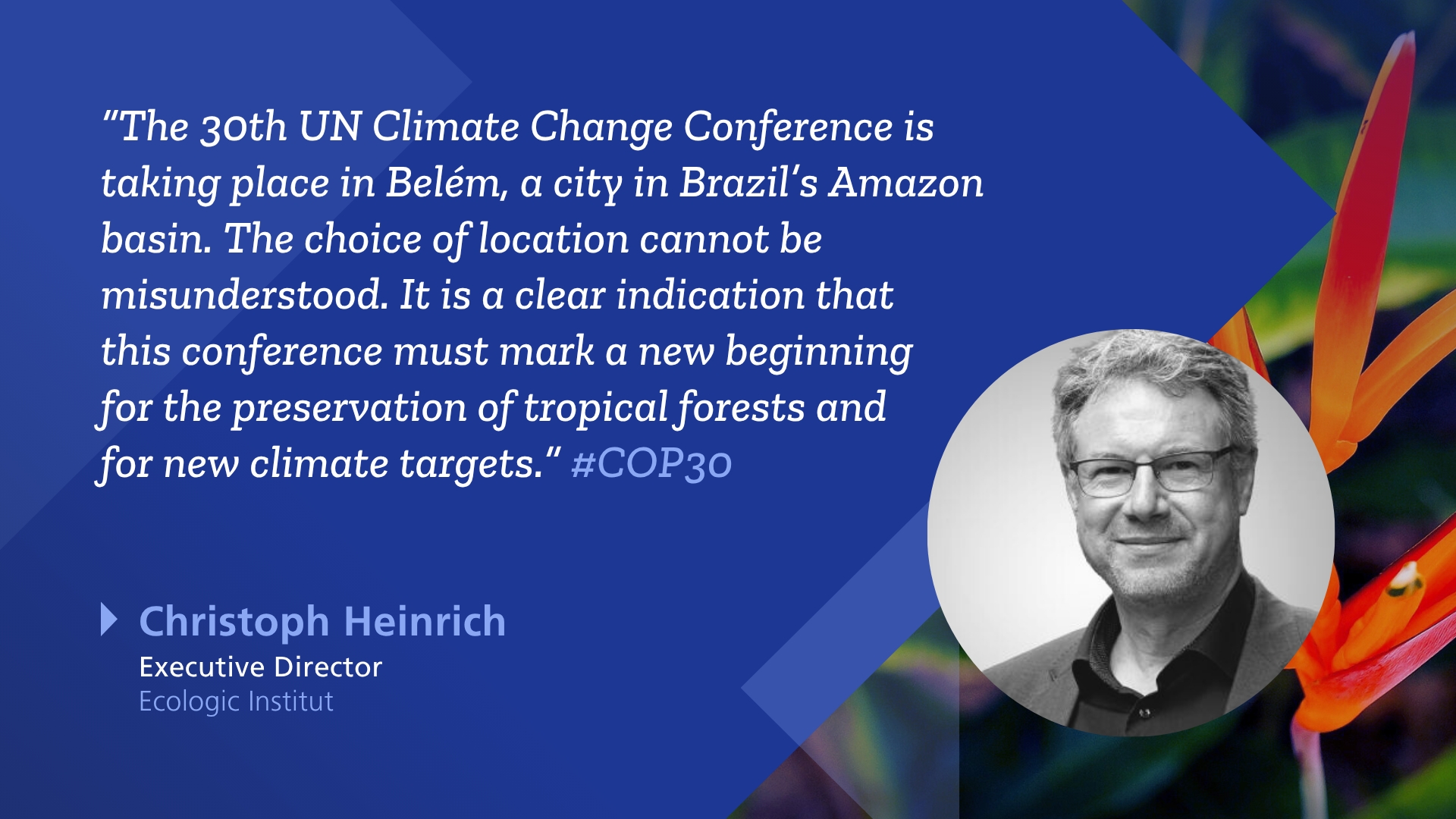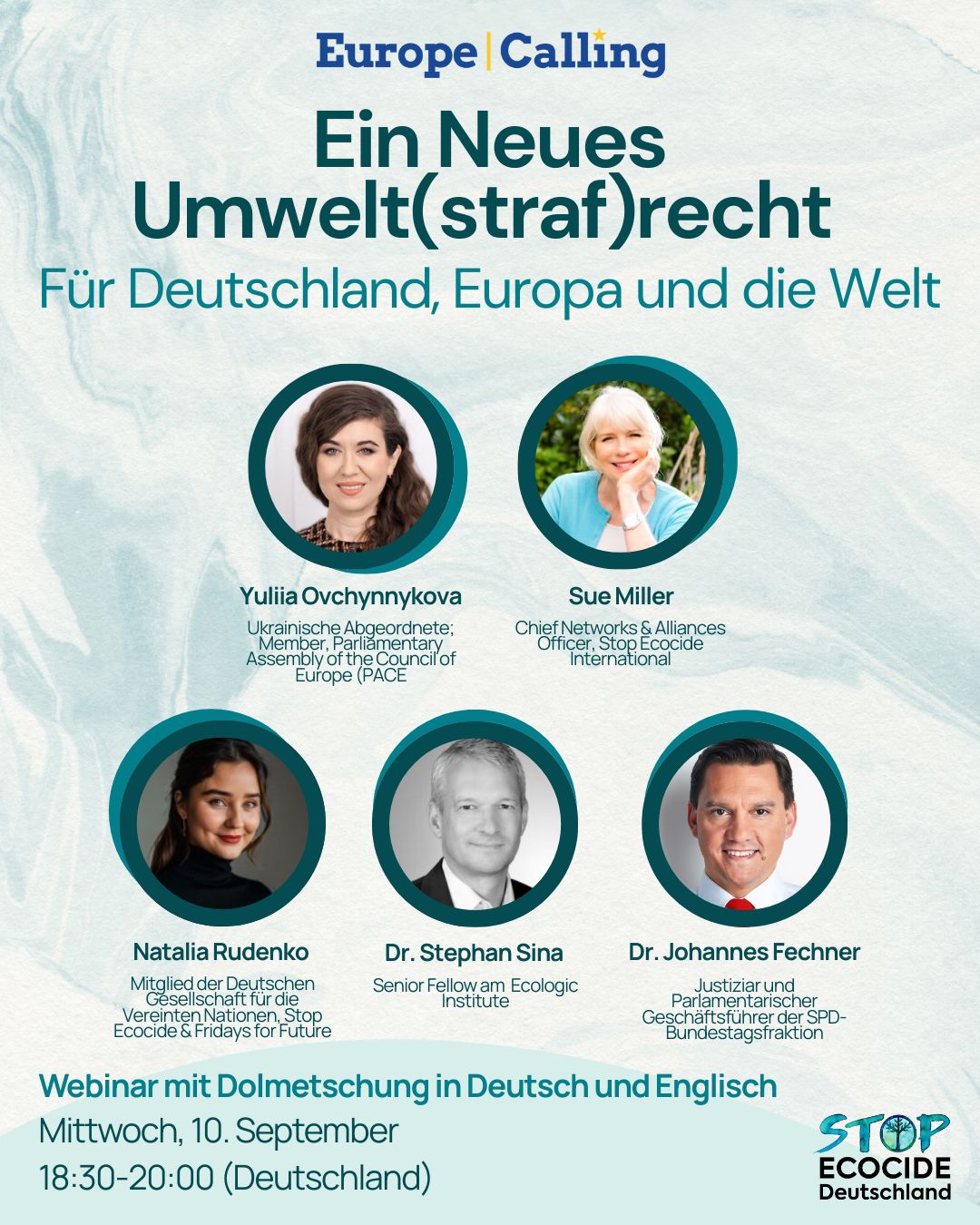Event:Conference
News
The COP30 Climate Conference in Belém
Will the Amazon bring hope or will questions remain?
Read more
Presentation:Interview
Presentation:Chairing
Event:Workshop
Bridging Science and Policy – Exploring the Marine Protection and Climate Adaptation Nexus
MEER:STARK Final Event
-
hybrid | Berlin,
Germany
Event:Workshop
Ecosystem-based Adaptation for Coastal Resilience (I)
In-depth workshop on stocktake and finance perspectives
-
Berlin,
Germany
Event:Workshop
From Thread to Cycle: Business Models for a Circular Future
Online Workshop
Online,
Germany
Event:Visitors Program
Event:Workshop
Event:Workshop
Designing Climate Resilient Landscapes in Europe
Regional Expert Workshop
-
Berlin,
Germany
Presentation:Speech
Presentation:Lecture
Event:Conference
Plan Digitally – Act Sustainably
Final Event and Stakeholder Workshop of the AMAREX Project
Cologne,
Germany
Event:Discussion
Fit for the future? How the new German government is positioning itself in environmental policy.
Horizon Scan
Berlin,
Germany
Event:Conference
Ecologic Institute turns 30
A special evening to reflect, connect, and celebrate
Berlin,
Germany

